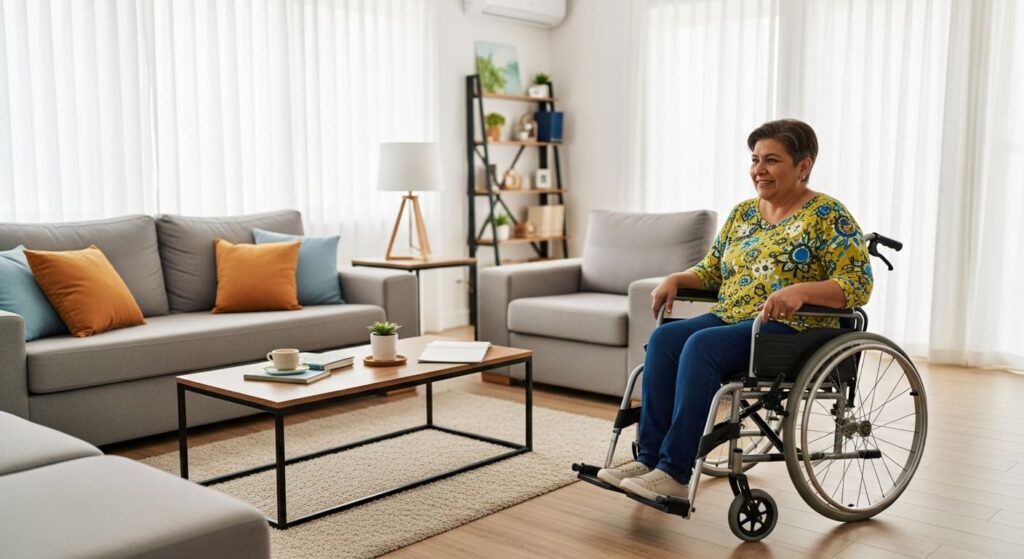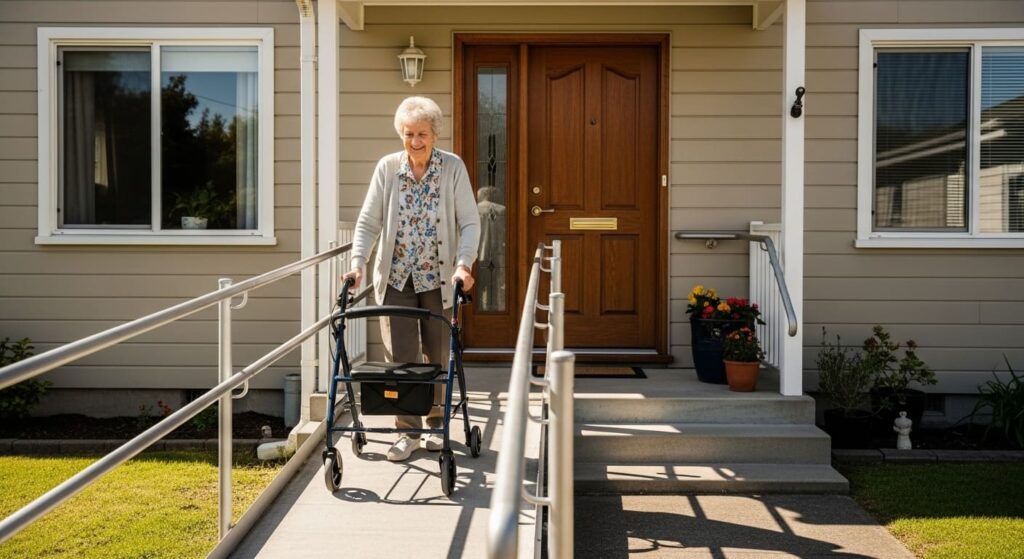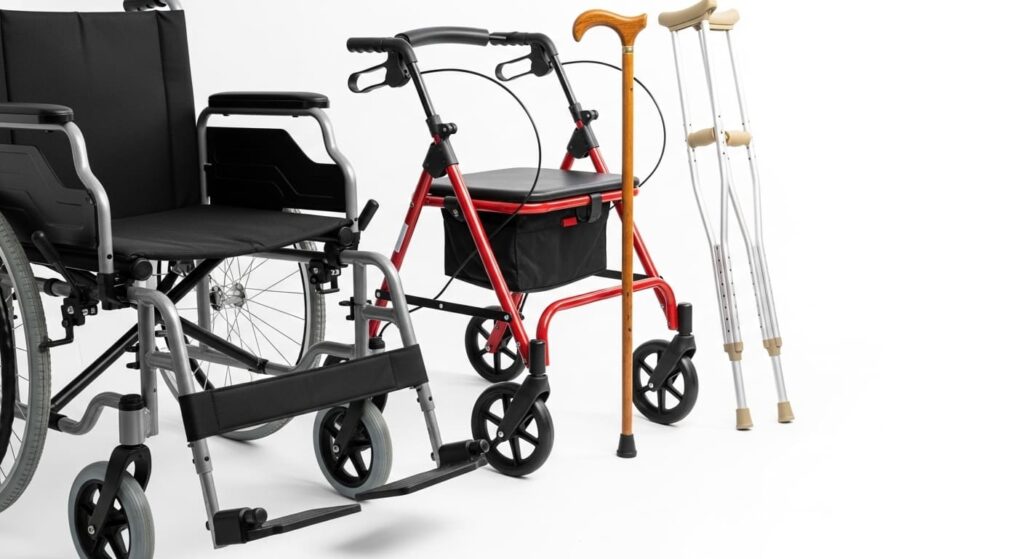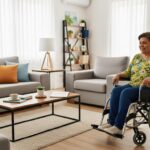Living Independently with a wheelchair

Over the past few years, the number of people using wheelchairs has been increasing. For some, it’s because of an accident or illness; for others, it’s because they’ve needed one since birth due to a genetic condition.
Despite this number increasing, many people still don’t realise how important a wheelchair is to someone’s daily life. It’s not just a way to get around; it has a big impact on a person’s independence, comfort and self worth. A wheelchair that doesn’t fit right or doesn't have the right support can make you uncomfortable, stressed and lose your independence.
The right wheelchair can give users the freedom, confidence and purpose to live their life.
Table of Contents
Independence and Company
We all want to feel confident and be able to do things for ourselves. It’s no different if you use a wheelchair.
Using a wheelchair doesn’t mean you’re alone. If anything, it becomes part of your daily life — something you rely on to get around, get things done, and be independent.
But if that chair doesn’t fit you or makes life harder, it can really knock your confidence. Simple things become hard, and it just feels like no one’s thought about what you actually need.
That’s why it matters to have the right wheelchair. One that fits you, feels comfortable and lets you get on with life your way.

Best Tips for Living Independently
Freedom at Home
Making your home safe and easy to get around in really helps if you want to stay independent. Here are a few simple ideas:
- Layout
Clear hallways and doorways so you’re not tripping over things or having to squeeze past furniture. Put the things you use most nearest and easiest to get to. - Furniture
Choose chairs and tables that are the right height for you. Not too low or hard to reach. It’s about comfort, but also what’s practical day to day. - Doors
If you use a wheelchair or walker, wide doorways make a big difference. You don’t want to be bumping into door frames every time you go through. - Bathroom Safety
Grab rails by the toilet and shower are a big help. They give you something to hold onto so you feel steadier and safer when moving about. - Front Door
If you’ve got steps outside, a wheelchair ramp can really help. Makes getting in and out much easier without needing someone there all the time.
Little changes like these might not seem like much, but they can make life safer, simpler and give you more confidence.
Having People Around Helps
Living on your own doesn’t mean doing everything by yourself. Everyone needs a bit of help sometimes, and there’s nothing wrong with that.
Support Groups
Good to talk to others who are in the same boat. Share ideas, get tips or just have a natter. Makes you feel less alone.
Family and Mates
If someone can help with things like shopping, getting out of the house, or just popping round for a cuppa, take it. Makes life easier. Doesn’t mean you can’t do things — just means you don’t have to do it all by yourself.
Daily Exercise Routine
Some movement each day makes a difference, even if it’s just a stretch or rolling your shoulders. You don’t need to go crazy with it. Just enough to stop your body from seizing up. A bit of wiggle now and then helps with balance too. Makes daily life a bit easier.
And it helps in your head not just your body. A bit of movement, even when you’re sitting down, lifts your mood. Stops you feeling sluggish. You feel more like yourself.
Physical Health Benefits
It’s not about doing loads. Just keeping things ticking over. Your muscles stay awake, your joints don’t lock up as much, and you don’t feel knackered at the end of the day.

Hobbies
When you’ve got something you enjoy — whether it’s messing about with a paintbrush, fixing old radios or doing puzzles — it keeps your mind busy. Makes the days feel less samey. You don’t have to be good at it. It’s just about having a go. Gives you something that’s yours.
Wheelchair Skills
Using a wheelchair isn’t just about sitting and rolling about — it takes a bit of learning, and that’s okay. The more you get used to it, the more you can do on your own. It’s all about feeling safe, moving with confidence and not needing to rely on people all the time.
Little things like knowing how to steer, control your speed, fold your chair or transfer in and out safely — they make a big difference once you’ve got the hang of it. Even sitting right can help avoid aches and make you feel more comfortable for longer.
And the best bit? The more you practice, the more it becomes second nature — and that feeling when you do something yourself for the first time? It’s a proper high.
Get the Mobility Aids You Need
When walking gets tough, the right bit of aid — whether it’s a wheelchair, walking stick, rollator or walking frame — can make life a whole lot easier. It’s not just about getting around, it’s about doing things on your own terms again.
A good mobility aid can turn a rubbish day into one that feels more manageable. You’re not stuck waiting for help — you can just get on with it. That freedom, even in small ways, gives you your confidence back. Makes you feel more like yourself again.
These aids aren’t just bits of metal and wheels. They’re like quiet helpers — always there, never complaining, just getting on with it. And once you’ve got the one that’s right for you, you wonder how you managed without it.

Final Thoughts
Living with a disability doesn’t mean losing independence; it means finding new ways to get it. Whether it’s choosing the right wheelchair, making your home more accessible, learning new skills or leaning on your support system every step of the way, you get closer to a life that’s fulfilling, confident and free.
You’re not alone. With the right tools, mindset and people around you can do anything and live life on your terms. Start small, stay consistent and never underestimate yourself, you got this!
Frequently Asked Questions
Why choose the right wheelchair?
Everyone wants a good friend, so a wheelchair is the same as a good friend, as it matches your lifestyle, comfort and needs. But if you choose a poorly fitted wheelchair so you will face pain, difficulty moving and frustration in daily life.
Can a wheelchair user live independently?
Absolutely! With the right mobility aids, home adjustments and some assistive skills, a wheelchair user can do most things on their own - just in a different way. Independence isn’t about doing everything by yourself — it’s about having the freedom to do things your own way.
How does exercise help if I use a wheelchair?
Exercise helps your body stay strong and your mind calm. It improves your body posture, reduces stress, keeps joints flexible and helps you feel more confident in your movements.
Is it normal to feel overwhelmed when you start living independently?
Yes, this is totally normal. Big changes take time. Start small, celebrate your progress and remind yourself that freedom looks different for everyone.
What kind of hobbies are good for wheelchair users?
Any hobby that makes you happy is great! Whether it’s painting, photography, writing or crafting, doing something you enjoy helps boost mental health and makes your day more meaningful.

